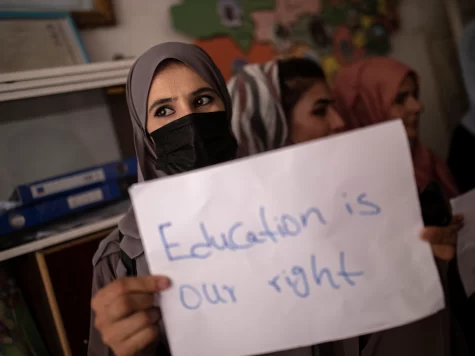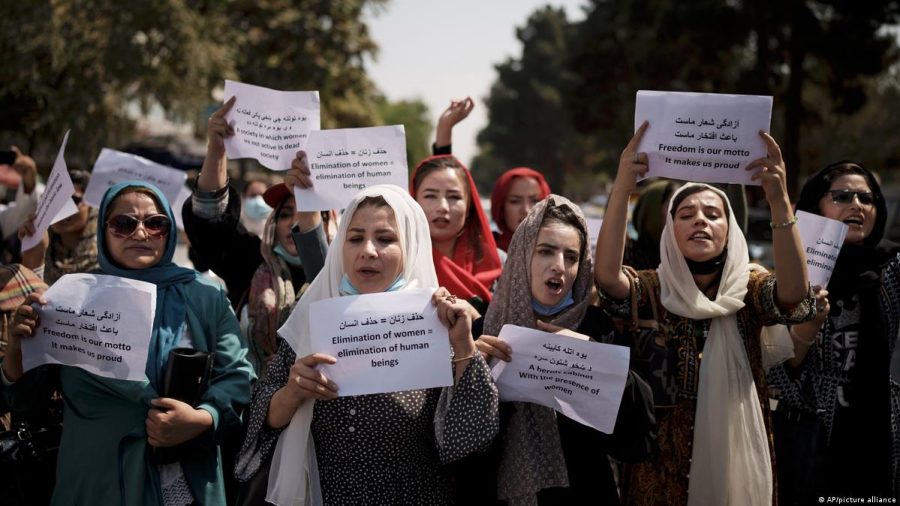UN Security Council Denounces the Taliban’s Treatment of Women, Unanimously
Afghan women protest for their rights on the streets with handmade signs. (https://www.dw.com/en/afghan-women-demand-their-rights-under-taliban-rule/a-59231449)
May 29, 2023
At the end of last month, the 15-member dedicatory body of the United Nations, “called for full, equal, meaningful and safe participation of women and girls in Afghanistan”. It also urged the Taliban to cease its restriction of female freedoms and rights that range from public participation to education and employment. Such a sentiment responded to the Taliban’s April 4 edict forbidding the UN from employing Afghan women and N.G.O.s and attending secondary schools and universities.
The resolution was sponsored by a collective of over 90 nations and was voted “yes” by all members of the council, which is a stance that is generally unprecedented in the international diplomatic peace organization’s history. This is perhaps due to the dire state of Afghanistan in its reprisal against women’s rights that undermines the UN’s humanitarian principles. Ever since the Taliban resumed power in Afghanistan in 2021, following the removal of U.S. oversight of the nation, women’s rights and liberties have been increasingly withheld. Such actions have included banning girls from receiving education past the sixth grade as well as prohibiting women from working the majority of jobs and restricting them in the public sphere.
The all-affirmative decision is especially surprising as the Security Council has been recently divided after the Russian invasion of Ukraine with the inability to come to a consensus on pressing issues.
The Security Council’s role in the UN is to maintain “international peace and security”, the primary founding goal of the organization. The body is granted the power to impose sanctions for noncompliance with restrictions on countries or governments. But, the aforementioned resolution did not exactly allude to punishments the Taliban administration would face if they were to violate their specified demands, as it is legally binding under international law.
After the U.S. withdrew from Afghanistan, it froze seven billion dollars in assets from the country’s Central Bank. The economy remains in a calamitous condition, and thus the UN resolution articulated the need for the international community to aid its finances. It stressed the need for a continued UN presence in the country as well as reiterated its commitment to work with the Special Representative of the Security Council and UNAMA: United Nations Assistance Mission in Afghanistan. It also incentivised Afgan relevant stakeholders, actors, and authorities to both commemorate and ensure the UN personnel in the nation and their mission.
The UN’s condemnation marks a public, authoritative step in the progressive direction to combat the oppression of Afghan women. Senior Chris Carr comments, “I have not heard much about the current crisis in Afghanistan, but in recently learning about it, I feel that the U.S. media should help spread their message more.” Junior Ellie Clark comments, “It’s heartbreaking to think about the Afghan women who are unable to go to school. Education is a basic human right, but also something that is so often taken for granted. It’s important to remember how fortunate we are to be able to go to school everyday.” Please see this page to find out how you can help aid these women who are currently fighting via grass-roots campaigns and protests to receive basic rights.



































